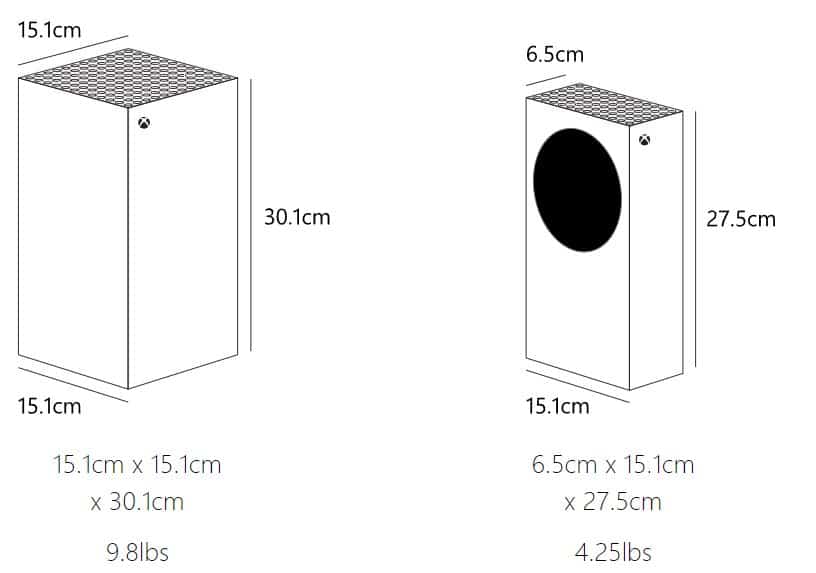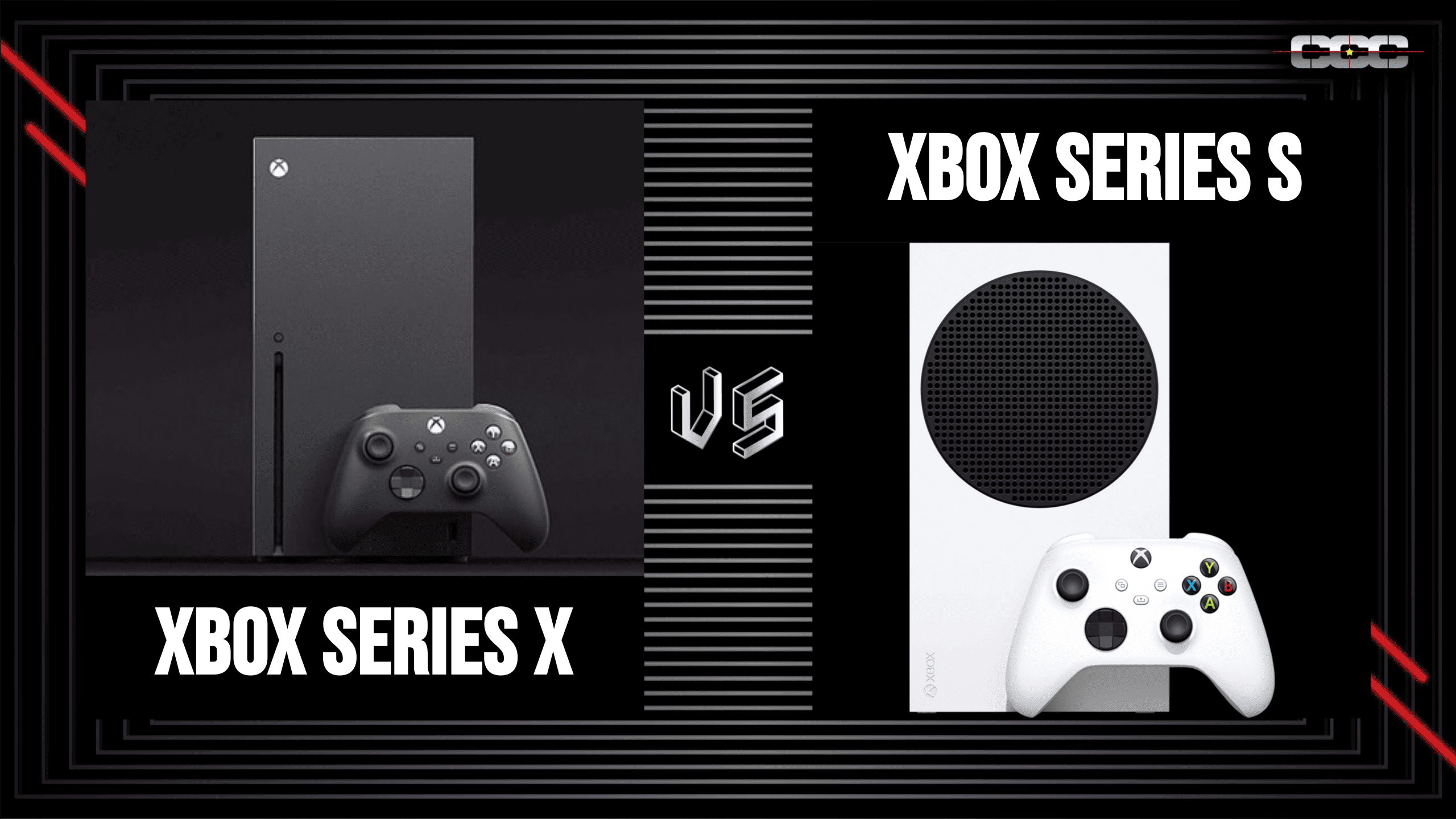The ninth generation of video game consoles brought not one, but two Xboxes: the Xbox Series X and Xbox Series S. Both systems play the same exact games and use the same accessories but the actual systems are different. One is a more powerful but expensive console, while the other isn’t as powerful but is more budget-friendly.
Let’s examine both systems and help you determine which version is right for you:
Xbox Series X vs. Series S: Cost
Many consumers heavily consider costs when choosing the right product for them. There is no difference here. The Xbox Series X costs $499.99 without any games bundled with it. Bundles that include games can cost anywhere from $529.99 to $559.99. So far, the system has come bundled with Diablo IV, Forza Horizon 5, Halo: Infinite, and more, with more games likely on the horizon.
The 512GB Xbox Series S costs $299.99 without any bundled games. The Xbox Series S Gilded Hunter bundle, which includes content for Fortnite, Rocket League, and Fall Guys, retails for the same price. However, as of the writing of this article, the system is set to clear, meaning supplies could be limited. On September 1, a black 1TB version will release for $349.99. However, the first version of the system to release will not have any bundled games.
Disc Tray
One of the most obvious differences is that the Xbox Series X has a disc tray, while the Series S does not. If you have many physical Xbox games, then you may want to stick with a Series X. If your library is mostly digital, however, you may consider the Series S to save a few bucks. Regardless, both systems can play the entire Xbox Series library of games.
Xbox Series X vs. Series S: Specs
If you are a stickler for the way your games look, then the Xbox Series X is for you. If you’re not concerned with graphical power, you can also consider the Xbox Series S. Let’s compare the specs between the two systems:
| Feature | Xbox Series X | Xbox Series S |
| Frame Rate | Up to 120 FPS | Up to 120 FPS |
| Processor | 12 teraflops processing power | 4 teraflops processing power |
| Resolution | True 4K | 1440p |
| Video | Up to 8K High Dynamic Range | Capable of 8K High Dynamic Range when used with an Ultra High-Speed HDMI cable |
| Audio | – DTS 5.1 – DOLBY Digital 5.1 – Dolby TrueHD with Atmos – Windows Sonic | – DTS 5.1 – DOLBY Digital 5.1 – Dolby TrueHD with Atmos – Windows Sonic |
| Ports and Connectivity | – 3x USB 3.1 Gen 1 ports – HDMI 2.1 out – 802.11ac dual-band wireless internet – 1Gbps Ethernet | – 3x USB 3.1 Gen 1 ports – HDMI 2.1 out – 802.11ac dual-band wireless internet – 1Gbps Ethernet |
| Storage | 1TB SSD base storage | 512GB SSD base storage (White) 1TB SSD base storage (Black, releasing 9/1) |
| Miscellaneous Features | – Xbox Velocity Architecture – Quick Resume – DirectX Raytracing – Variable Rate Shading – Spatial Sound – Smart Delivery – Backwards Compatibility – Works with Xbox One gaming accessories – Xbox Game Pass | – Xbox Velocity Architecture – Quick Resume – DirectX Raytracing – Variable Rate Shading – Spatial Sound – Smart Delivery – Backwards Compatibility – Works with Xbox One gaming accessories – Xbox Game Pass |
Physical Size
The two systems also have very different physical sizes. Depending on how much space you have available, though, you may prefer one system over the other.
The Xbox Series X is about 6 inches across, 6 inches wide, and almost 12 inches tall. The system weighs almost 10 lbs.
By comparison, the Xbox Series S is much smaller, measuring 2.5 inches across by ~6 inches wide and ~11 inches tall. The system only weighs 4.25 lbs. As a result, if you travel often, you may want to consider the Series S and its more compact stature.
Here is an official comparison diagram from Microsoft. It uses centimeters but should give you a good idea as to how big the systems are. The Series X is taller and thicker but isn’t much longer than the Series S.

Conclusion
At the end of the day, the choice between the Xbox Series X and Series S comes down to cost versus performance. If you are comfortable purchasing a less powerful console at a cheaper price point, then the Xbox Series S is fine for you. However, if you demand peak performance from your console, the Xbox Series X would be the better choice. Either way, the Xbox Series X and Series S offer great gaming options for people who want to play their games on a Microsoft console.
